How a Millennial First-Time Homebuyer Made $100K On His First Home In Just 3 Years
In early 2017, millennials surpassed generation x by a measure of the total number of mortgages, and today this coming-of-age group represents half of all new mortgages! Needless to say, a growing number of homebuyers are millennials who too want to live out their dream of homeownership. What’s more, there are a growing number of stories featuring millennials who use homeownership as an investment vehicle to supplement their nine-to-five income. Millennials aren't just buying homes, they're building equity. A millennial first-time homebuyer made $100K in equity on his first home in just three years. If you're considering purchasing your first ever home, his story will give you insight on what it could be like for you.
“Throughout my late twenties, I rented condos around Boston. I was in a rhythm; content with working my nine-to-five job as a young professional and paying somewhat of a premium for a lease in a beautiful and up-and-coming section of the city called Charlestown.
“It wasn’t until I turned 30 that I began to acknowledge
I was paying someone else’s mortgage and hampering
my own ability to save for my future.”
With almost a decade in the workforce, I had just over $25,000 in savings which I never considered enough, especially if I ever wanted to afford a home of my own. The more I educated myself on the homebuying process and the incentives available to first time home buyers, the more I realized it was possible, affordable, and advantageous for me to plant my roots.
The very first decision I made was hiring a buyer’s agent who knew the local market, could locate the best home to match my goal of owning a multifamily, and could mentor me on how to estimate if the asking price would allow me to be cash flow positive after all expenses. This is the most complicated part in my opinion, so if you’re considering this avenue then make sure your agent is seasoned and willing to guide you.
I settled on a “Fixer Upper” duplex just south of the city. Boston’s known for being a high priced market, and I didn’t have a ton of cash reserves to afford something turnkey. What I lacked in cash I would make up in sweat equity. I researched several strategies to maximize my savings and settled on what’s commonly referred to as “House Hacking”. This means that I rent out part of my primary residence to generate revenue in order to offset my costs. Most banks require a 25% down payment for investment properties, but since it was my primary residence, I was able to purchase my home with very little money down. Full disclosure, I’m a veteran so I was able to take advantage of the VA Home Loan with no money down (although I put $10K down so the seller knew I was a serious buyer). Non-veterans reading this should read up on FHA loans that require as little as 3.5% down when buying your first home.
I knew that floating the cost of two units would be challenging, especially considering my large mortgage payments since I put very little money down, so I needed to generate as much income as possible and quickly. I chose to occupy the unit in the worse condition so I could rent the other right away which was basically turnkey. I replaced the furnace, installed central air, added fresh paint, and replaced the second-floor carpet. That was enough to command a rent that covered almost 80% of my monthly mortgage & insurance payments! I was able to recoup the cost of the upgrades in a matter of months. My own unit needed more TLC so, in addition to the same upgrades, I also gutted both bathrooms and remodeled the kitchen knowing that when I do move out I will probably be able to command higher rents. Contractors can be expensive to hire so since the work was in my unit and I wasn’t in a rush, I did a lot of the renovations myself. Sweat equity is a great way to keep your costs down, learn new skills, and develop pride in your home/business.
In the span of three years, I also replaced the front common porch, two private back porches, replaced every window in the home with efficient windows, added insulation to the attic and basement, and tackled countless smaller projects throughout to improve little things that would compound over time.
It’s important to note that extensive updates and improvements to a home can take years - at least for me. I had to be conscious of how much I was spending so as to not go over budget. I also took advantage of a state program that provided an interest-free loan to upgrade all of my windows and insulate the home. Not only is the home more comfortable and the utilities cheaper each month, but I was able to finance a $16,000 project interest-free for 7 years. I also collected more than $1,000 in rebates on my 2 new furnaces and water heaters. Educate yourself on the programs and incentives that are available to you!
Back to House Hacking...since half of the duplex is a real estate investment, there are a ton of tax incentives that I can leverage. I am able to deduct half of my mortgage interest (which is a large expense when a loan is young), half of my insurance payments, depreciate part of the home and repairs, and write off some expenses associated with managing the property. These line items add up over the year and offset the rental income I generate so I actually pay very little (if any) tax on the income I generate from my tenant.
Fast forward through three years of blood, sweat [equity], and tears. Property values have increased at a steady rate so my home is worth more today than what I paid for it; meaning I had equity sitting in my home. Couple that with the repairs and improvements I’ve made over time, I had a good indication that I could sell my home for a lot more than I paid for it. I decided that cashing out the equity would allow me to put this money to work.
Most lenders will allow you to cash out 75-80% of your equity. I am lucky enough that the VA’s Cash-Out refinance loan allows for 90%. My home appraised for $490,000 in the summer of 2019, meaning I was allowed to cash out $441,000. I still owed $370,000 of the original principal balance of $395,000. That left $71,000 I could cash out less closing costs of about $7,700 for a “payday” of $63,000. Here is the best part... my home and flood insurance (I’m by the ocean) have been steadily increasing each year so my savvy lender shopped for a cheaper bundled deal. I was able to reduce my monthly insurance payments by so much that my total monthly mortgage & insurance payments are actually $12 less than before I refinanced!
So by refinancing this year, I was able to receive $63,000 (tax-free) AND my monthly payments have decreased. I now have the freedom to invest that money in another property, save for a single-family home, or put it towards my wedding next summer.
I invested roughly $50,000 in repairs and upgrades over the past three years, which will allow me to produce more than $25,000/year in income from just one unit for years to come; double that number when I move out of my unit.
There are many different nuances that I didn’t even begin to scratch the surface on here, and I made many mistakes along the way. I’m in no way an expert, but I’m empowered to repeat this model in the future. House hacking isn’t for everybody, but if you’re considering buying a home there are ways to put the property to work for you so you can grow your net worth beyond your nine-to-five job. Being a landlord is definitely time-consuming and headache inducing, but in the grand scheme it’s been well worth my time, effort, and money!”
Lessons Learned:
1. Take your time when deciding on your real estate agent. I wouldn't have found my home without my local expert.
2. Hire a savvy lender that understands ways to reduce your costs wherever possible.
3. Educate yourself on the government programs/incentives that are available to homebuyers.
4. Apply sweat equity to save money, but only on projects within your scope. Savings aside, you'll reap intrinsic rewards and have a feeling of pride for doing the actual work on the house you own.
5. Find a mentor to guide you on your journey. You aren't the first person to do what you are doing. Leverage the experience of others.



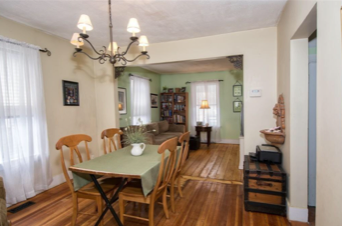
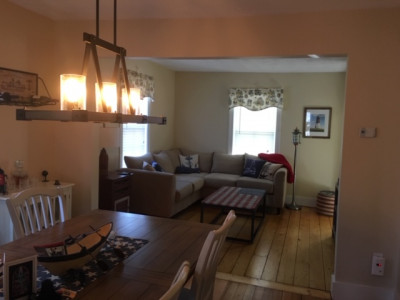
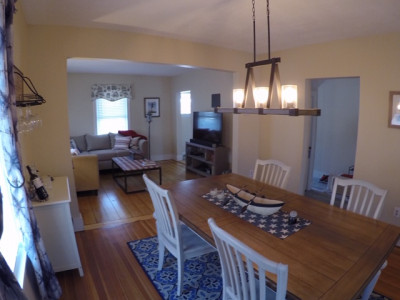
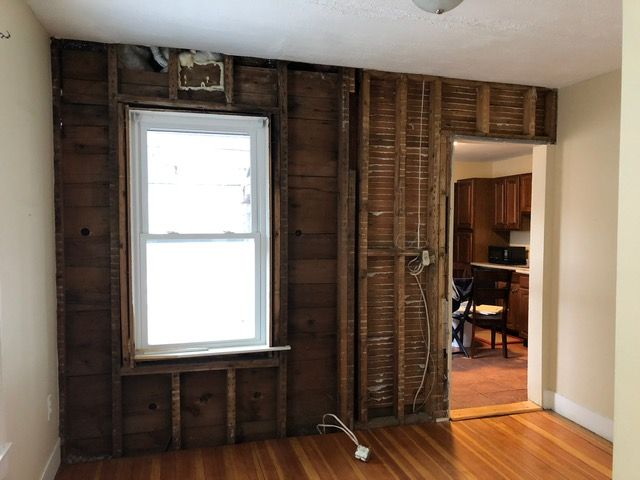.jpg?w=400)
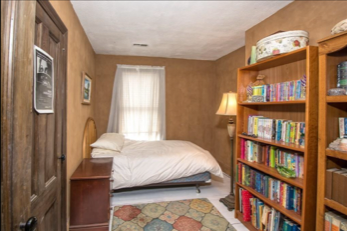
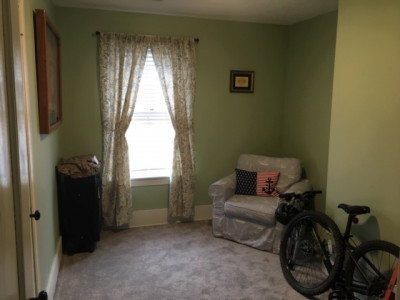
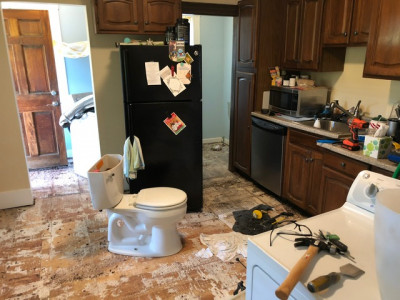
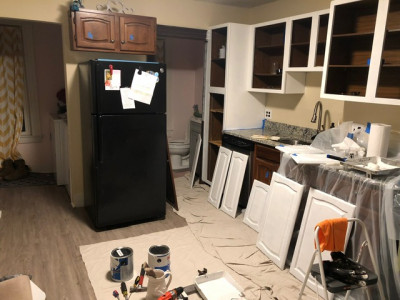
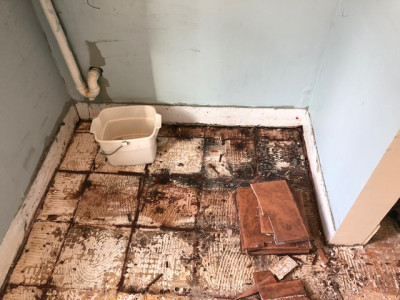
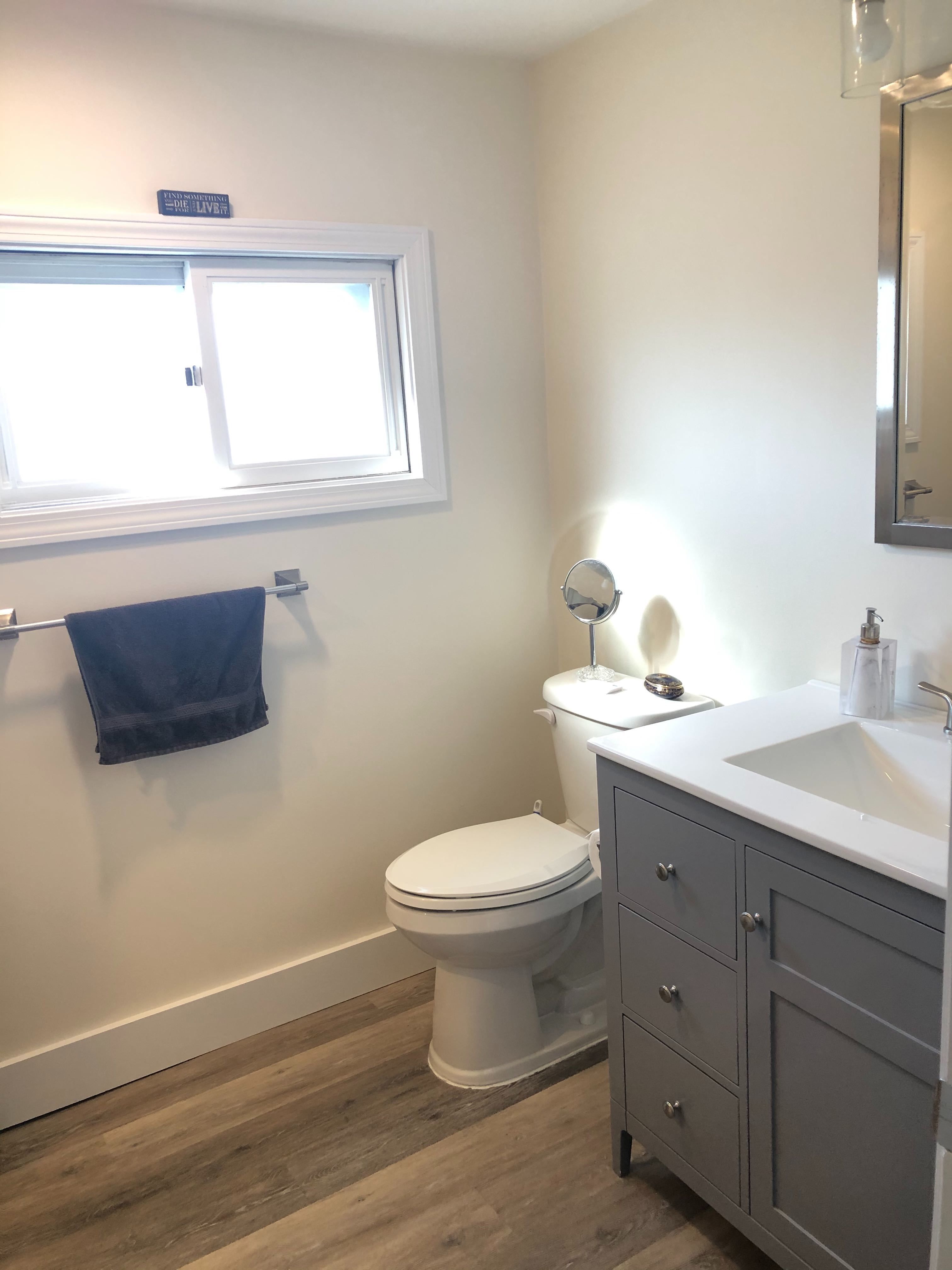.jpg?w=400)